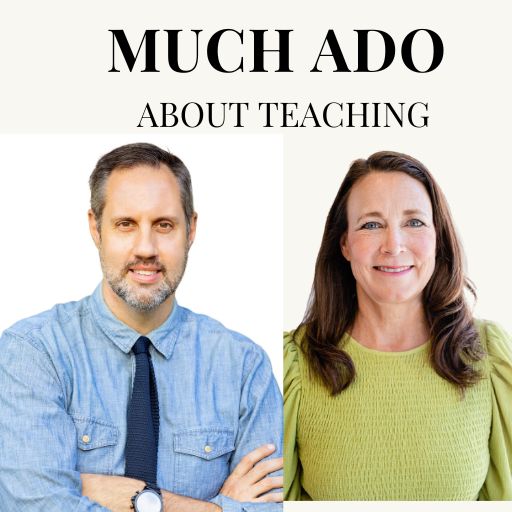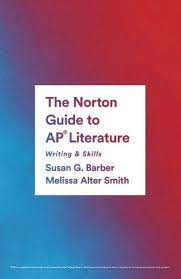When Gina Kortuem asked if I would be interested in a crosspost about summer work, I immediately answered yes because my summer work has slowly morphed over the last few years. I was not at all surprised when I read Gina’s post Why I Ditched Summer Reading to see that she and I have been on a similar journey.
I inherited AP Literature from the prior teacher with summer work included reading How to Read Literature Like a Professor, an assigned novel, and a summer journal already assigned. Students were tested over the books on the first day back and the summer journal was submitted. My year one plan was to follow what my predecessor did since I had no idea what I was doing, so I required the exact same thing. Over time, I have shifted my thinking on summer reading.
Disclaimer
This is what I have found to work with my students at this particular time. We all teach in different places and teach different types of students. In no way am I saying this is the right way or only way to do summer work. You know your students, school, and community so do what’s best for your demographics.
Summer Reading Drawbacks
Even when summer work was mandatory, I had some internal struggles with it for these reasons:
- Equity. Even though I taught in an upper middle class suburban school when I started assigning summer reading, I could not make the assumption that all students had the resources to buy the required books. Especially in AP classes, required students to buy books is a means of gatekeeping, and this was causing me to feel uneasy.
- Rest. When I get to summer, I am exhausted from the marathon of a school year. The last thing I want to do is any kind of school work. Rest – both physically and mentally – deserves our attention and should be valued without guilt. Multiply summer work by 4 or 6 classes, and that leaves little time for students to rest and recharge for the fall (and by fall I mean August 1st for our students).
- Pleasure. Many teachers argue that students only care about grades and find no joy in learning just for the sake of learning. Having a test on day one over summer work takes a lot of the joy out of learning and honestly not how I want to start class. I am always trying to find ways to make learning less about compliance and more about pleasure, and summer work was often only yielding frustration for me and my students.
- Lack of Completion. Students often didn’t do summer work. This picture was taken in 2018 when I first went to Grady (now renamed Midtown) HS and The Poisonwood Bible was the required summer reading. When it became apparent that many of my students didn’t read, I asked them to put a sticky note in the quartile of how much they read. The picture speaks for itself.

What Lead to a Change
Brian Sztabnik’s thoughts on summer work really got me thinking. His desire to assign summer work “that is not punitive but is preparatory” resonated and made me put a stake in the ground.
- Shift one: Choice novel. Around 2018, I was experimenting more with choice reading in class, so moving from my required reading of The Poisonwood Bible to a choice novel seemed like a no brainer. I immediately had more student buy in.
- Shift two: Adding an Introduction Letter. Inspired by Karla Hilliard, I write a letter to my new students introducing myself and the class and ask them to do the same for me. This has proven to be one of the best things I do all year (it’s all downhill after the first week – ha) because students have a glimpse of my heart for the year and I get a peek at who they are – not how they perform as students.
- Shift three: Covid. As we make a quick pivot at the end of 2020, our administrators asked teachers to make all summer work optional. This was the final push I needed to really go all in on optional summer work, and even though some teachers at my school have gone back to requiring summer work, I have not and don’t see myself doing this anytime in the near future.
Summer Work 2024
This summer I’ll give my students the option to do 2 assignment and require 1 assignment due the first week of school.
Assignment 1 (Optional): Read a book of your choice for fun. No test, no notes, no essay – just read and enjoy and let’s talk about it when you get to school in the fall (or August 1st). I give a list of some of my favorite contemporary novels but the choice is theirs. Young adult? Sure! Graphic novel? Yes! Audiobook? Audiobooks are books! Here’s the list I provide:
All the Light We Cannot See – Doerr
Behold the Dreamers – Mbue
Exit West – Hamid
Homegoing – Gyasi
In the Time of the Butterflies-Alvarez
Kindred – Octavia Butler
Klara and the Sun – Ishiguro
The Leavers – Ko
Little Bee – Cleeve
The Love Songs of W.E.B. DuBois – Honorée Fanonne Jeffers
Mudbound – Jordan
The Nix – Hill
Now is Not the Time to Panic – Wilson
Pachinko – Lee Min-jin
The Poisonwood Bible – Kingsolver
A Prayer for Owen Meany – Irving
Purple Hibiscus – Adichie
Salvage the Bones – Ward
Sea of Tranquility – Mandel
The Secret History – Tartt
Southernmost – House
There,There – Orange
A Thousand Splendid Suns – Hosseini
Tomorrow and Tomorrow and Tomorrow – Zevin
White Teeth – Smith
More of a nonfiction person? Try –
Becoming – Obama
The Best We Could Do – Thi Bui
Between the World and Me – Coates
Born a Crime – Noah (highly recommend audio version that Noah reads)
Educated – Westover
How the Word Is Passed – Clint Smith
Just Mercy – Stevenson
Notorious RBG: The Life and Times of Ruth Bader Ginsburg – Carmon and Knizhnik
Stolen Focus: Why You Can’t Pay Attention and How to Think Deeply Again – Hari
They Can’t Kill Us Til They Kill Us – Abdurraqib
The Sun Does Shine: How I Found Life and Freedom on Death Row – Hinton
21st Lessons for the 21st Century – Yuval Noah Harari
Assignment 2 (Required): Write me a letter of introduction. Use my introduction letter as a model. This will be students first assignment in class and is due at the end of the first week of school. If they choose to work on it over the summer, that’s one less thing to do during week one.
Assignment 3 (Optional): Keep a journal. Reading and writing are rooted in experience. Having a broad range of experiences is important to understanding the many ideas explored in the works we read in class. In addition, a large part of class is about helping students find their writing voice. These are some of the reasons I encourage students to keep a journal about their thoughts and experiences. Students will have the option of turning these in in place of an essay grade for the first semester.
Potential Activities to Write About:
1. Attend a summer festival. Try the Atlanta Jazz Festival (free) during Memorial Day weekend, Atlanta Ice Cream Festival, Movies on the Square at Colony Square, or so many others you can find here.
2. Go to a museum or a historic attraction. Try the High Museum, Carter Presidential Library, Atlanta History Center, Fernbank Museum, Trap House Museum. Many of these places offer free days so check ahead.
3. Spend a day without electronics. I would love for everyone to try this.
4. Explore a neighborhood in Atlanta. Eat at the Krog Street Market. Walk the Belt Line. Explore the Westside Provisions or Ponce City Market..
5. Go for a hike. Morningside Nature Preserve is really close, but there are lots of great places just a little farther out like Sweetwater Creek, Providence Canyon, Amicalola Falls, or the Appalachian Trail in Georgia. If you really want to have some fun, check out the Doll’s Head Trail in Atlanta.
6. As y’all already know, Atlanta has amazing street art. Spend an afternoon taking a self-guided tour or choose some interesting murals to visit.
7. Go tent camping.
8. Attend the theatre (not the movie theater) to see a live production. Try the Shakespeare Tavern, plays in Piedmont Park, or the Center for Puppetry Arts.
9. Eat a meal from another culture.
10. Work at a shelter, food pantry, or other organization preparing or delivering food.
11. Prepare a meal for your family or friends and then enjoy it with them.
12. Spend an afternoon exploring one of Atlanta’s many parks. Westside Park recently opened and of course Piedmont Park is directly across the street from the school.
13. Buy some fruit at a local farmer’s market then bake a cake or cobbler.
14. Attend a service or interview a person of a different religion.
15. Visit the Martin Luther King National Historic Park which includes MLK’s birthplace, Dr. and Mrs. King’s graves, and Ebenezer Baptist Church. This is not only in our school district (many of you live close to there) but it’s also free.
16. Plan a trip – map out the route, find places to stay, and points of interest to visit.
17. Spend an evening playing board games or cards with your family or friends.
18. Visit a cemetery and read the headstones. Consider the history of family, community, state, and nation embodied in these headstones. Reflect on your experiences. Creepy but fun. Oakland Cemetery is my favorite .
19. Visit a quiet spot on a beach, by a stream, or by a lake. Spend an hour in thought and record your thoughts in a journal or notebook.
20. Spend a morning or afternoon exploring a neighborhood in Atlanta that you’re not familiar with.
Final Thoughts
When I think back on the progression of my summer assignments, I can see how my teaching philosophy has shifted. While I don’t want to reinvent the wheel each year, I do like freshening up assignments to reflect the changing needs of our students and my growth as a professional. I’ll end where I began: there’s no right way to do summer work.
You can find my entire summer work instructions for students here: Barber Summer Work 2023.

Susan Barber teaches AP Lit and Writers Workshop/Advanced Composition at Midtown High School in Atlanta, Georgia and serves as the College Board Advisor for AP Lit. In addition to reading, writing, and investing in the next generation, she loves watching college football with her family especially when Alabama is playing.
Feature photo image: Photo by S O C I A L . C U T on Unsplash













2 comments
Lisa Huber
I switched last year to a summer discussion board rather than a mandatory reading assignment. Knowing how much I love my reading communities, I thought providing a safe place for students to talk about books would be my jam…and it was! I teach students with special needs, so giving them a chance for casual dialogue (along with free choice of books) really increased participation. I think it would work for any level of ability. I’m going to do it again this year!